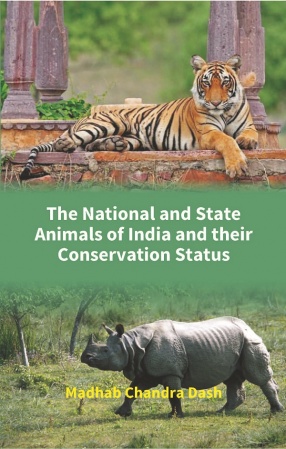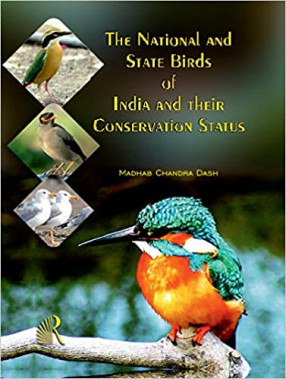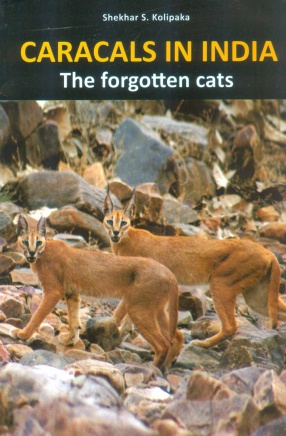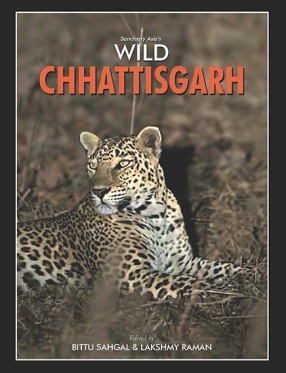The National and State Animals of India and Their Conservation Status
The National and State Animals of India and their Conservation Status: Indian government has adopted the Bengal Tiger as National animal and all the 29 States and Union territories have also adopted specific animal as their state animal. India has diverse ecosystems including Ramsar Sites and landscapes. The large mammals and other animals are also important for wildlife tourism in India. The book describes all these aspects. The book consists of 30 chapters, which include photograph of 28 mammals and one fish and about their body structure, ecology-distribution range and behaviour, diet, vocalization, reproduction and reproductive behaviour and the present conservation status by IUCN, CITES, and Indian Wildlife Protection Act and the reason for choosing them National and State animals. Many of the wild life are associated with our culture and religion and way of life. Many wild animals are associated with Hindu Gods and Goddesses. In view of this, wildlife conservation is the call of the day. The book will be of immense importance for students in ecology and wildlife biology, to students preparing for competitive examinations and people at large to know about their national and state wild-animal resources.
Contents: Preface. 1. Introduction: The National and State Animals of India. 2. Indian National Animal: Bengal Tiger. 3. The State Animal of Andhra Pradesh, Haryana and Punjab–The Blackbuck. 4. The State animal of Arunachal Pradesh and Nagaland: Gayal (Bos frontalis) . 5. The State Animal of Assam: One horned Rhinoceros (Rhinoceros unicornis) . 6. The State Animal of Bihar: OX . 7. The State Animal of Chhatisgarh; Wild Water Buffalo. 8. The State Animal of Goa: Gaur (Bos gaurus) . 9. The state Animal of Gujarat: Asiatic Lion (Panthera leo persica). 10. The State Animal of Himachal Pradesh: Snow Leopard (Uncia uncia or Panthera uncia), India: Schedule I . 11. The State Animal of Jammu and Kashmir: Kashmir Stag/Hanglu: Cervus elephas hanglu (Wagner), India: Schedule I . 12. The State Animal of Jharkhand, Karnataka and Kerala: Indian Elephant: Elephas maximus indicus . 13. The State Animal of Madhya Pradesh, and Uttar Pradesh: Barasingha (Swamp Deer): Cervus duvaucelii (G.Cuvier) . 14. The State Animal of Maharashtra: Indian Giant Squirrel: Ratufa indica . 15. The State Animal of Manipur: Brow-antlered Deer (Sangai): (Cervus eldi eldi) . 16. The State Animal of Meghalaya: Clouded Leopard (Neofelis nebulosa) . 17. The State Animal of Mizoram: Himalayan Serow: (Capricornis thar) . 18. The State Animal of Odisha: Sambar (Rusa (=Cervus) unicolor) . 19. The State Animal of Rajasthan: Chinkara (Gazelia bennettii) . 20. The State Animal of Sikkim: Red Panda (Ailurus fulgens) . 21. The State Animal of Tamil Nadu: Nilgiri Tahr (Nilgiritragus (=Hemitragus) hylocrius). 22. The State Animal of Telengana: Spotted Deer (Axis axis). 23. The State Animal of Tripura: Phayre’s langur (Trachypithecus phayrei). 24. The State Animal of Uttarakhand: Alpine Musk deer (Moschus chrysogaster) . 25. The State Animal of West Bengal: Fishing Cat (Prionailurus viverrinus) . 26. Andaman & Nicobar Islands: Sea Cow (Dugong), Dugong dugong Lacépède, 1799 . 27. Chandigarh: Indian Grey Mongoose (Herpestes edwardsi) . 28. The State/Union Territory animal of Delhi: Nilgai (Boselaphus tragocamelus) . 29. Lakshadweep: Butterfly-fish (Chaetodon decussotus) . 30. Puducherry: Indian Palm Squirrel (Funambulus palmarum). References. Index.
Get it now and save 10%
BECOME A MEMBER










Bibliographic information